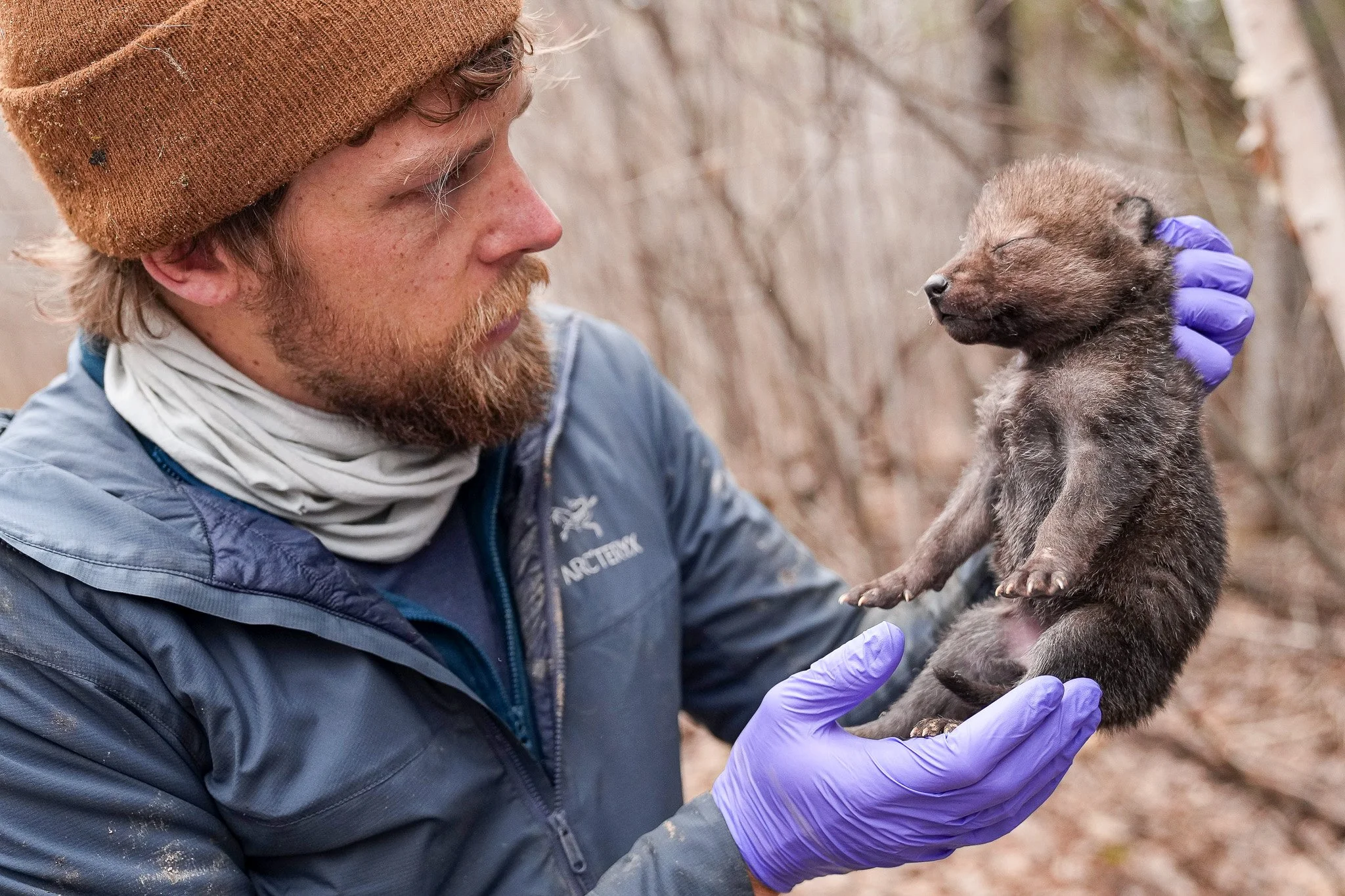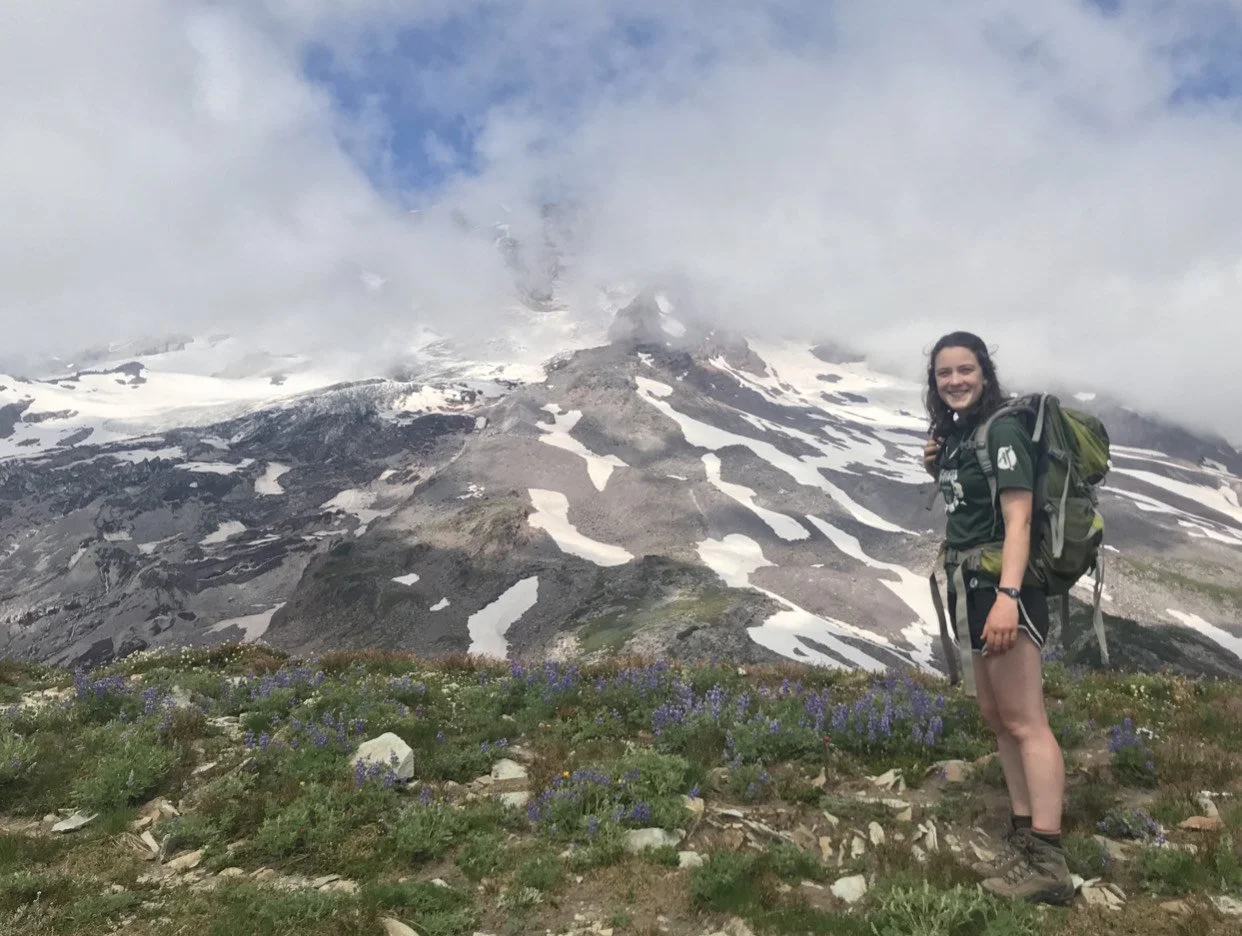Written By: Leslie Brown
Sara Jordan-McLachlan spent a summer as a research intern for Cascades Carnivore Project 11 years ago, and to this day it stands out as one of her favorite summers.
Every day, she’d head out from Paradise at Mount Rainier National Park, locate the den a Cascade red fox was using to raise her two kits, find a spot in the brush to settle into, then sit for the next few hours, observing and recording the family’s behavior.
She noted the way the female approached the den, the food she brought, the kits’ behavior when she arrived, and the way the family regarded her. “They always knew I was there.”
The work was a joy, she said. “As field work goes, this was one of the easiest and most enjoyable jobs imaginable,” she said.
It was also meaningful work. Jocelyn Akins, CCP’s director and founder, first captured the image of a Cascade red fox on a trail camera in 2008, an important discovery – many thought the elusive mountain carnivore no longer inhabited the area. The field work that followed – including that of Sara’s – helped establish not only the presence and behavior of these animals at Mount Rainier, but also their imperiled status.
In 2022, after 15 years of study at Mount Rainier that documented 51 individual Cascade red foxes, the Washington Department of Fish and Wildlife listed the fox as endangered, opening the door to a recovery plan that CCP and other agencies helped to develop and today are working to implement.
Sara had no idea at the time that her summer of fox observations would be part of something so foundational, but she said the work gave her an important start in her own journey towards a career in wildlife conservation. Jocelyn was a mentor to her, encouraging her to pursue a graduate degree – Sara ultimately obtained an MS in Environmental Practice at Royal Roads University. The experience watching foxes at Mount Rainier shaped her professionally, as well, she said. “It helped me to know how to do that kind of behavioral observation and how to understand how wild animals sometimes behave around people.”
Sara left CCP to return to Calgary, her hometown. Today, she lives with her family in this fast-growing city in southern Alberta, working with Calgary Captured, a project of the Miistakis Institute for the Rockies. She manages the camera project, overseeing 60 remote cameras and a team of volunteers – part of an effort to understand the presence and behavior of wildlife in Calgary and to ensure they have the connectivity they need to survive.
In many ways, it’s a job that circles back to her days on Mount Rainier, where wildlife cameras also helped scientists understand the presence and needs of imperiled animals.







